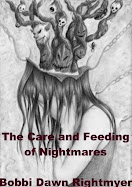“Cold now,
Close to the edge. Almost
unbearable. Clouds
bunch up and boil down
from the north of the white bear.
This tree-splitting morning
I dream of his fat tracks,
the lifesaving suet.”
 The first stanza of this poem sets the scene. You can see the cold, feel the cold, all the way down to your bones. The white bear is the cold winter wind, but the clue is in the lifesaving suet. Technically, suet is the fat tissue around the kidneys of some animals like sheep and cattle. In some cultures, suet is used for cooking, but I think this suet is a more literal form.
The first stanza of this poem sets the scene. You can see the cold, feel the cold, all the way down to your bones. The white bear is the cold winter wind, but the clue is in the lifesaving suet. Technically, suet is the fat tissue around the kidneys of some animals like sheep and cattle. In some cultures, suet is used for cooking, but I think this suet is a more literal form. My lifesaving suet is my passion for writing, my thirst for knowledge. Reading and writing are what gets me through the hard times, the cold times. So often I feel like my life is perpetually in its winter months. "Cold now" and "almost unbearable," so what keeps me going? The life-saving suet; the fat from my past.
“I think of summer with its luminous fruit,
blossoms rounding to berries, leaves,
handfuls of grain.”
 We move from "almost unbearable" cold to a memory of "summer with its luminous fruit." I see the summer as the happy moments of life. The luminous fruit and blossoms are the memories we gather in our hearts, storing them away for when the times are cold. These handfuls of grain help to light the darkness, stave off depression and give us hope for the future.
We move from "almost unbearable" cold to a memory of "summer with its luminous fruit." I see the summer as the happy moments of life. The luminous fruit and blossoms are the memories we gather in our hearts, storing them away for when the times are cold. These handfuls of grain help to light the darkness, stave off depression and give us hope for the future.“Maybe what cold is, is the time
we measure the love we have always had, secretly,
for our own bones, the hard knife-edged love
for the warm river of the I, beyond all else; maybe”
The cold of winter is when we measure the love we hold for ourselves; the hard love for "I." It is a drawing inward, a time to look deep inside and find our true self. It is a time of reflecting, finding the problem areas and learning how to change them.
“that is what it means the beauty
of the blue shark cruising toward the tumbling seals.”
Many times there is beauty in fear, beauty in ugliness or violence, so I can see "the beauty of the blue shark cruising toward the tumbling seals." Love can devour, sometimes swallowing emotions whole. So this confusion of cold is likened to our inward desire to consume ourselves. We are the blue shark.
“In the season of snow,
in the immeasurable cold,
we grow cruel but honest; we keep
ourselves alive,
if we can, taking one after another
the necessary bodies of others, the many crushed red flowers.”
 We keep ourselves alive by taking “the necessary bodies of others.” That cruel requirement of life, that it takes life and life is taken; we feed life and life becomes beautiful. Whether we eat the bear in winter or ourselves in our loneliness or our lovers in our passion, our lives are consumed with the desire to destroy by partaking in an event we usually associate with health, nutrition, life; but in this case, our lives are the deaths of something else – a memory, a feeling, an emotion.
We keep ourselves alive by taking “the necessary bodies of others.” That cruel requirement of life, that it takes life and life is taken; we feed life and life becomes beautiful. Whether we eat the bear in winter or ourselves in our loneliness or our lovers in our passion, our lives are consumed with the desire to destroy by partaking in an event we usually associate with health, nutrition, life; but in this case, our lives are the deaths of something else – a memory, a feeling, an emotion. I've certainly grown more honest even if it is seen as cruel, even if it destroys some things that are beautiful. I think the red flowers at the end might be "crushed" underfoot; therefore, they contrast with the "fat tracks" at the beginning of the poem. That is, the "lifesaving suet" that is left bleeding at the end.
I see this as a poem about aging and growing older. Dreaming of the "fat" times and thinking back to summer are ways of remembering youth, grieving the loss of youth. It's as if the cold brings out the worst in us - cold-hearted survival, or intense love. Only by loving our innermost selves can we hope to love others.
We drain the very essence of the other to continue to hear our own river's song humming in our ears. We continue to collect the suet of memories, the blossoms of happy times, and the crushed red flowers of lessons we have learned along the way.











No comments:
Post a Comment